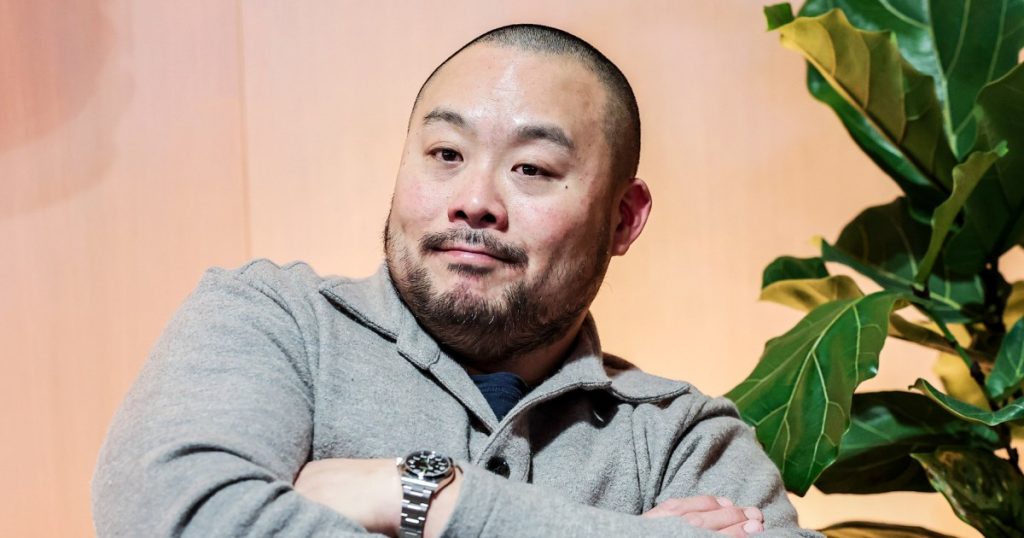David Chang recently issued an apology on his podcast following criticism over his company, Momofuku, attempting to trademark the term “chili crunch.” Chang and Momofuku CEO Marguerite Mariscal stated on the podcast that they would no longer enforce the trademark and expressed regret for any harm caused to the AAPI community by their actions. The company had sent cease-and-desist letters to businesses using the term “chili crunch” and was in the process of trying to trademark it to differentiate their product from others in the chili crisp category. Chang explained that the inspiration for Momofuku’s chili crunch came from various sauces, including the popular Lao Gan Ma chili crisp sauce. Despite efforts to differentiate the product, the company ultimately decided to relinquish the trademark to avoid further controversy.
Chang and Mariscal discussed the background behind Momofuku’s decision to trademark the term “chili crunch,” citing the need to protect their brand and prevent another company from claiming the name. They had previously purchased the trademark from another company, Chile Colonial, who had sent a cease-and-desist letter to Momofuku before the acquisition. In an effort to protect their trademark, Momofuku decided not to enforce it moving forward, potentially allowing the term “chili crunch” to become a generic term owned by no one. This decision was a response to criticism from small business owners, including those who had received cease-and-desist letters from Momofuku for their use of the term.
Chang, known for his role in promoting Asian cuisine and identity in the U.S., has faced controversy in the past for his outspoken opinions and management practices in his restaurants. The recent trademark dispute over “chili crunch” has caused backlash from small business owners, such as Michelle Tew of Homiah and Jing Gao of Fly by Jing, who felt targeted by Momofuku’s actions. Tew described receiving the cease-and-desist letter as a “punch in the gut,” while Gao expressed disappointment in Chang’s attempt to claim ownership of a generic cultural term. Eric Huang, founder of Pecking House, criticized the trademark filing as a capitalist move that goes against the spirit of fair competition in the industry.
Despite the backlash, Chang and Mariscal announced on the podcast that Momofuku would no longer enforce the trademark for “chili crunch,” allowing the term to potentially become a generic label in the food industry. This decision was made to address concerns from the AAPI community and small business owners about the impact of trademarking a common cultural term. Moving forward, Momofuku aims to resolve branding disputes amicably and support fair competition in the food market. The controversy surrounding the ill-fated attempt to trademark “chili crunch” serves as a reminder of the challenges and complexities involved in navigating the intersection of cultural identity and business interests in the culinary world.













